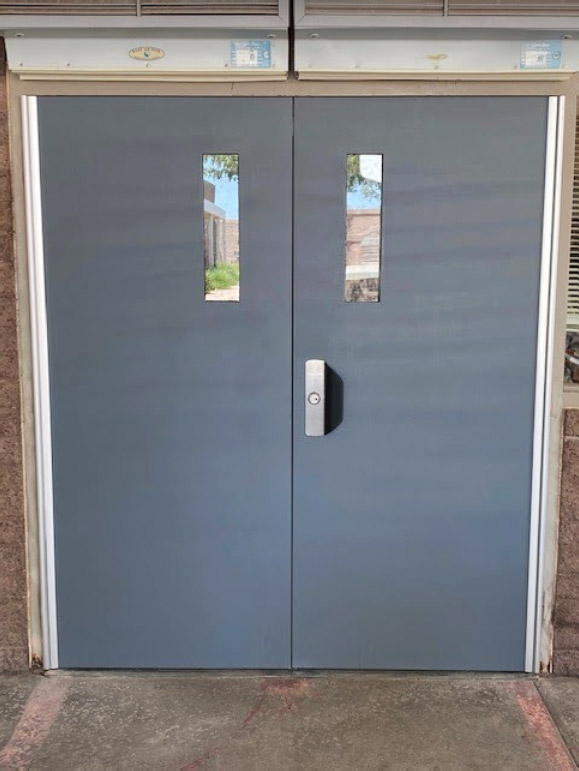When it comes to choosing the best door for a business or industrial setting, two common options are hollow metal doors and aluminum doors. Both materials have their own pros and cons and can be used in different settings, but they also have differences that can make them better or worse for certain jobs. Let’s look at the pros and cons of hollow metal doors and aluminum doors to help you make a smart choice. Read on to learn more.
Doors Made of Hollow Metal
Hollow metal doors are made by bending and welding together sheets of steel to provide a strong, long-lasting door. Most of the time, these doors have a hollow core that is filled with insulating material like polystyrene or polyurethane. This makes them better at keeping heat and sound inside. Some important features of hollow metal doors are:
Strength and Durability
One of the best things about hollow metal doors is how strong and long-lasting they are. They don’t get scratched, dented, or hit, so they are great for places with a lot of foot traffic or where security is important.
Fire Resistance
Hollow metal doors are noted for being able to resist fire. They can handle high temperatures for a long time, giving people inside time to get out safely in case of a fire.
Security
Hollow metal doors are very secure against forceful entry and unauthorized access since they are built to last. Heavy-duty locks, hinges, and other security features can be added to them to make them even safer.
Customization Options
Hollow metal doors come in several sizes, shapes, and finishes to fit different types of architecture and personal tastes. You can paint them or cover them with different things to get the look you want.
Aluminum Doors
Aluminum doors are comprised of frames and panels that have been extruded from aluminum. They are a lightweight and rust-resistant alternative to steel doors. They may not be as strong as hollow metal doors, but they have a number of distinct benefits:
Lightweight Construction
Aluminum doors are much lighter than hollow metal doors, which makes them easier to put up and use. This function is especially useful in places where weight is important, like in storefronts or homes.
Corrosion Resistance
Aluminum doors are good for outdoor or coastal areas where they will be exposed to moisture and salt air since aluminum naturally resists corrosion. This resistance to corrosion means that it will last a long time and need little maintenance.
Aluminum doors are popular because they seem sleek and sophisticated. You can finish them with different powder-coated colors or anodized finishes to match the building’s overall appearance.
Energy Efficiency
Aluminum doors can have thermal breaks and insulated glass panels added to them to make them more energy efficient and increase their thermal performance. However, aluminum is not as thermally efficient as steel.
Hollow metal doors and aluminum doors both have their own pros and cons, and they work well in different situations. Hollow metal doors are very strong, long-lasting, and safe, making them perfect for places with a lot of foot traffic and where safety is very important. Aluminum doors, on the other hand, are popular for storefronts, modern buildings, and places with unique architectural needs because they are light, don’t rust, and look good. In the end, the choice between hollow metal doors and aluminum doors will rely on things like how the doors will be used, how much money you have, what you want them to look like, and how well they need to work.
Commercial Door Installation In Phoenix
We install commercial hollow metal doors, commercial wood doors, fire rated steel doors, and commercial security doors.




